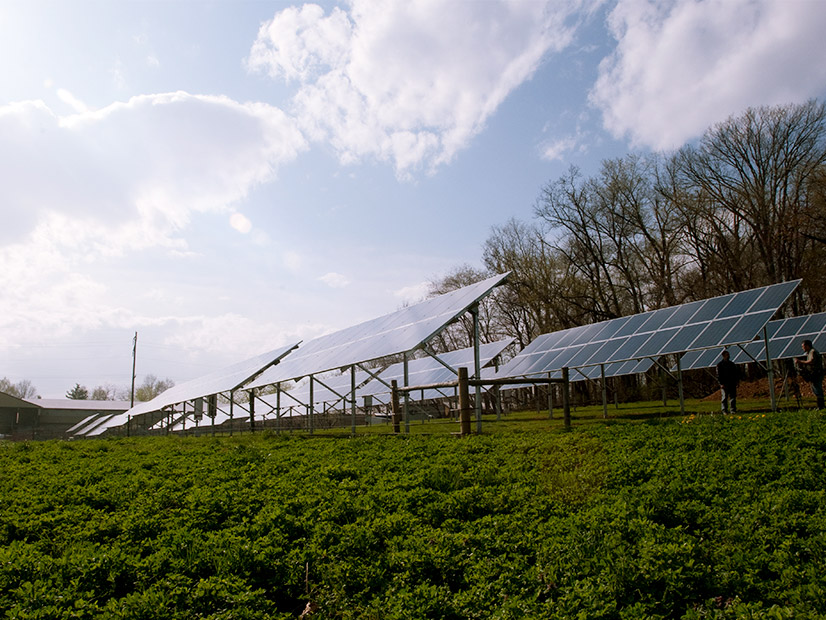PJM stakeholders overwhelmingly endorsed the RTO’s proposal for a new interconnection queue process and a related transition plan after several hours of debate and procedural motions at Wednesday’s Markets and Reliability Committee and Members Committee meetings.
The proposal, which was developed at the Interconnection Process Reform Task Force over the last year, was endorsed with a sector-weighted vote of 4.37 (87%) at the MRC and 4.52 (90%) at the MC. The new interconnection process was nearly unanimously endorsed at the January Planning Committee meeting, while the transition proposal received 91% support at the February PC. (See “New Interconnection Rules Endorsed,” PJM PC/TEAC Briefs: Jan. 11, 2022 and PJM Planning Committee Endorses ‘Fast Lane’ Criteria for Gen Projects.)
PJM said it plans to file the proposal with FERC before the end of May.
In a statement issued after Wednesday’s meetings, PJM CEO Manu Asthana thanked RTO staff and stakeholders for developing the proposal.
“These changes represent a landmark accomplishment for PJM stakeholders and staff that establishes a better process to handle the unprecedented influx of generation interconnection requests and is critical to clearing the backlog of projects,” Asthana said. “We remain committed to our strategy of facilitating decarbonization policies while preserving reliability and cost-effectiveness and will continue to work on issues raised by stakeholders during deliberations that were not part of the package.”
Jack Thomas of PJM’s Knowledge Management Center reviewed the RTO’s proposal, which includes moving away from the concept of “first come, first served” projects in the queue to a “first ready, first served” concept. PJM said the change will ensure projects that are ready to be built are prioritized instead of allowing speculative projects to fill the interconnection queue.
The number of generation projects entering the interconnection queue has nearly tripled over the last four years as more renewable projects are planned in PJM. The RTO started the year with almost 2,500 projects under study in the queue, and about 95% of the more than 220 GW is from renewables, storage or a combination of the two.
The proposal also adds language indicating that if a project doesn’t require a facility study or network upgrades it could move to the final agreement stage early, speeding up the process. The study window for projects is proposed to be 710 days, or just under two years.
PJM’s proposal includes a two-year transition to wade through the backlog of projects in the queue by prioritizing more than 1,200 projects submitted into the queue before 2021. The transition also includes a “fast lane,” which will seek to complete about 450 projects (Queues AE1 through AG1) with upgrade cost allocations up to $5 million within 18 months.
“This has really been a tremendous body of work by our staff and all of our stakeholders to come together to find consensus to some very difficult and complex issues,” said Ken Seiler, vice president of PJM’s planning department. “This is an opportunity today to control our own destiny and really represents a large step forward towards providing our region and the whole industry with more certainty.”



